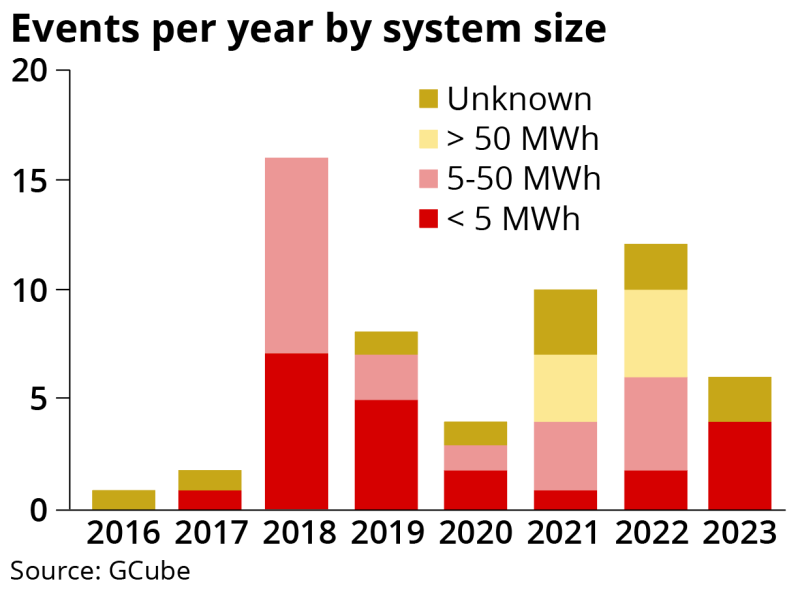
Renewable energy underwriters are “optimistic” about the opportunities relating to battery energy storage systems (BESS), although managing key risks associated with the prototypical technology is essential, according to a report from GCube.
The renewables underwriter said that BESS failures had risen tenfold since 2016, and the sector needed confidence around the management of thermal runway risks, public safety liabilities, and transit and cargo challenges.
There is concern that failure trends may persist as larger 100MW+ assets are deployed, leading to increased financial loss for owners, developers and insurers.

GCube said that in line with the growth of the technology, it expects BESS assets to represent 30% of its portfolio by 2030.
While the sector presents exciting growth prospects for the market, GCube warned that the technology is high risk and requires appropriate management.
“In the case of BESS, it is especially important that potential risks are not overlooked given the potential for catastrophic thermal runaway fires wiping out entire projects,” the report said.
“While the increased pace of BESS development is a welcome boost to transitioning energy markets in the short term, it also leads to challenges in securing long-term sustainability of the segment as new battery systems and the layout of projects lack standardisation across the industry.”
GCube added that a significant proportion of BESS failures occur in the initial two years of operation, with 38% of recorded failures taking place in year one and 21% in year two.
“This cumulative figure of 58% underscores a markedly higher failure rate within the initial operational phase compared to other energy systems, such as solar panels, which typically exhibit a lifespan of 20-25 years,” the report said.
This was a “serious cause for concern” and warranted further examination, according to the report.
GCube CEO Fraser McLachlan said: “The BESS sector is experiencing rapid growth. However, we don’t want to repeat the mistakes of the past of allowing growth in deployment and technological scale to take priority over quality control, and the large-scale losses and market destabilisation that result from that.”
